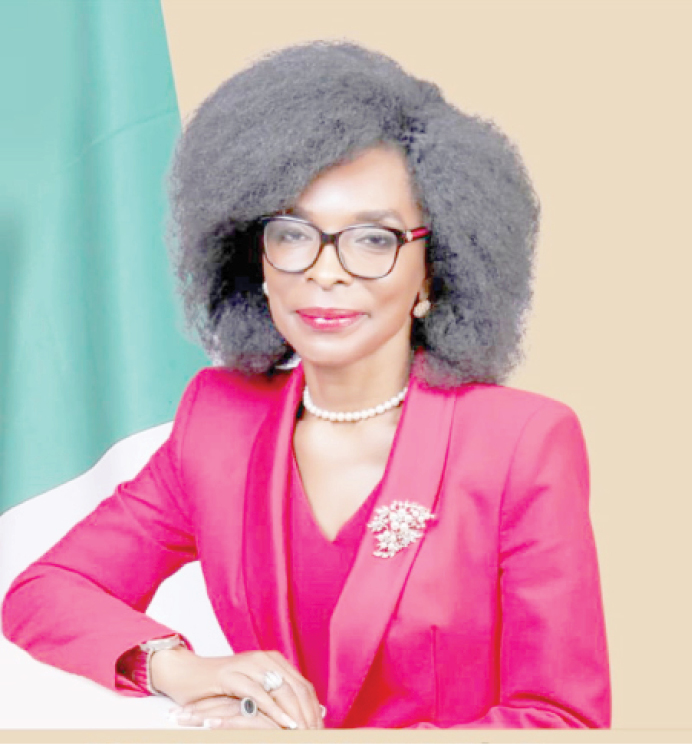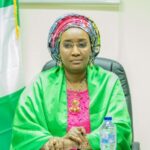Dr Emem Omokaro is the Director General, National Senior Citizens Centre (NSCC). The centre is responsible for providing assistance and support to senior citizens in the country as part of the government’s commitment to improve the welfare of its elderly citizens. In this interview with Trust TV’s Daily Politics programme, she spoke on the progress recorded so far by the centre. Excerpt:
Who is an elderly person? 60 years and above, I will say; that is mostly the mandatory age for retirement and most public servants retire at 60 and the national policy on aging said 60, which we have now operationalised in the national plan of our activity.
However, the National Senior Citizens Centre says to enjoy the facility of the centre, you have to be 70.
The mandate of the National Senior Citizens Centre is to identify the needs of senior citizens and to cater for these needs and it goes on to outline the priority areas.
FG to Senate: You can’t stop demolition of aviation agencies’ offices
Diphtheria killed 73, infected 557 Nigerians in 21 states – WHO
So first and foremost is to identify the needs to train and continue to build the capacity of older persons.
Even after retirement?
Yes!
They need some capacity building?
Exactly, which means it recognises that older people still have their expertise, their experiences, their skills, their passions and they are right holders and they have every right to continue to engage and participate in the things they love and have value for.
And then it talks about development of enterprises and livelihood ventures for older people to continue to earn income or to supplement their income.
It talks about development of programmes in health, in social care and then social programmes, social assistance, safety net programmes, any kind of assistance recognising that this population category also has vulnerable older persons.
And then, of course, it talks about sports, recreation, counselling services for older people and then recognises the need to develop a data system, keep records and statistics of older people.
And it ensures that we encourage the states and local governments to also domesticate the act and then develop policies on ageing so that we can align our services to services in states and local governments.
And of course to ensure that we also look out and develop linkages with regional and global organisations to help us in whatever we are doing.
So it is not a one-off thing?
We have launched our strategic road map for 10 years which if you pick up the document, all our partners are picking the document and our global partners; they are like yes, Nigeria is really serious about this, this is where they are, this is where they want to be. They have identified all the challenges, all the aspects and they are building them now.
So now we have a national plan of action on ageing and have broken it down to project activities which we will now integrate into the national development plan 2025.
What is your relationship with other government agencies?
We visit all those MDAs that have a statutory mandate that intersects ours. So in visiting all these MDAs, we had to identify their mandates and the way they intersect ours. That is why one of our strategies was ageing mainstreaming, meaning find where these programmes already exist and where older persons were hitherto excluded and then make a high point of persuasion and not just make a high point of persuasion but enhance their capacity to understand aging and then enhance their capacity to fund the point of their statutory mandate to understand the kinds of programmes that are age-specific that they can develop and then we can work with them to ensure that older persons are socially included.
But are all these ministries and agencies on the same page?
Yes, and we have signed MoUs with ministries on projects developed either by us or their own projects that they are mainstreaming older people. We’ve just signed an MoU with the Federal Ministry of Health, because we are concerned about geriatric care. That is not primarily our mandate; it is primarily the mandate of the ministry but it is also our mandate because our focus is on older people.
Recently I read about one of the former presidents of the United States; he is around ninety-something… Is that Carter?
Exactly; that he is going into this kind of care, meaning leaving the hospital back home.
We are interested in making sure that we can have domiciliary care, which is homecare that you can have trained caregivers going to homes using the care agency model.
Then we can also have trained and certified agencies that can run some residential homes; they are already running some of those ones but they are not standardised.
I made an attempt to register one of my aunties; my mum’s sister, and when I approached one of the healthcare organisations, the HMO right, they gave me a bill of nearly 200,000 compared to less than 50,000 for a newborn baby. What is the problem?
I don’t know what care you needed.
She is just to be enrolled for healthcare.
For health insurance?
Yes!
I think that now with the National Health Insurance Authority Act, older persons and the vulnerable have been identified to enjoy the coverage; free coverage without paying dividends. It is in the act and NHIS….
When is it going to come to light?
The act was just signed this year, so we are working on that to see because you need a pool of money to do that and then, of course, NHIA also has developed a community-based healthcare system and we are working also with some states to see how older persons can benefit.
And what we are doing; training caregivers and certifying agencies and certifying things, we are bringing sanity to an industry so that we can now work with National Health Insurance Scheme and even other insurance companies because we are trying in the long run to develop a sanitised long term care system.
So that is why I told you that there was nothing at all, so we now start to build these policy guidelines, this benchmark statement, this minimum standard and then bring certification, all in the interest of protecting our older people. So this is just one example.
And then another example, you asked a question about these MDAs, regarding how they are working together. We have partnership with the National Directorate of Employment and we have mainstreamed our older people into their mature people programme and our older people are receiving grants and loans for their entrepreneurship activities and their livelihood ventures.
We are now working with SMEDAN, so in that area of income security, we are now doing visibility to older persons who continue to engage and contribute, and these are entrepreneurs; they have livelihood ventures.
It is just that before now, they were invisible, before now it was so stereotypical that should you give an older person a loan, he is going to fall down and die, you know.
So we are trying to re-programme people’s mind that you can find a typical older person; you can find one that is frail, old and sick but you can find a 70-year-old man or woman that is more vibrant than a 30-year old and you know their expertise and experiences, and you can harness all that.
So, under entrepreneurship, we have developed so many things. We just finished a national assessment of senior aid indigenous crafts.
Okay, is it a culture or a religion in this part of the world that we don’t have homes for the elderly?
Okay, I was telling you when I said we are standardising care and I said there are many care settings. I mentioned the domicile homes, especially for this middle, long-term care, and then I said there is also community care and it is inside this community care setting that we are building our senior centres. That is where you talk of active senior centres; it is like a day care, but older persons in that community.
In fact we are launching one community, one senior centre campaign, because we need private sector involvement, so we have been holding a private-sector round table, so you can build in your community. So we are writing; we are crafting those policy guidelines and operational manuals. This is a standard that you need to build a senior centre. And we want to now be able to monitor and evaluate and build on to develop programmes that you can adopt to fit your cultural context.
Earlier you mentioned health right and now transportation, and I know in other climes, older people have this special card that can be used while travelling. You don’t need to pay; you just show the card and you ….
I told you that NSCC is looking at the multi-sectoral aspect and it’s looking at ageing as a development issue, and I told you that we are building capacities and creating partnership in all the MDAs.
So when it comes to age-friendly transportation, especially housing and age-friendly environment, we are working with NIMC to develop this card that you are talking about because we had that presidential directive, that declaration that we should progressively register older persons so that cards can be issued to them to be able to access discounts and you know concessions and priority treatments in public spaces, train and all that.
So we have gone far on that; we have even developed the dummy, and are looking forward to where the pool of money is going to come from for that.
What about those that are too old to do any other thing? Are there plans for them to be getting some incentives, cash incentives that in the main time…?
That is part of what we are discussing and I want to say that some percentage of older persons are in the conditional household grant; you know they are giving those grants to households.
But we have moved and we are pushing, and I think I have the green light. You know that older people will be given a standalone social safety net, so we want to see that happen.




